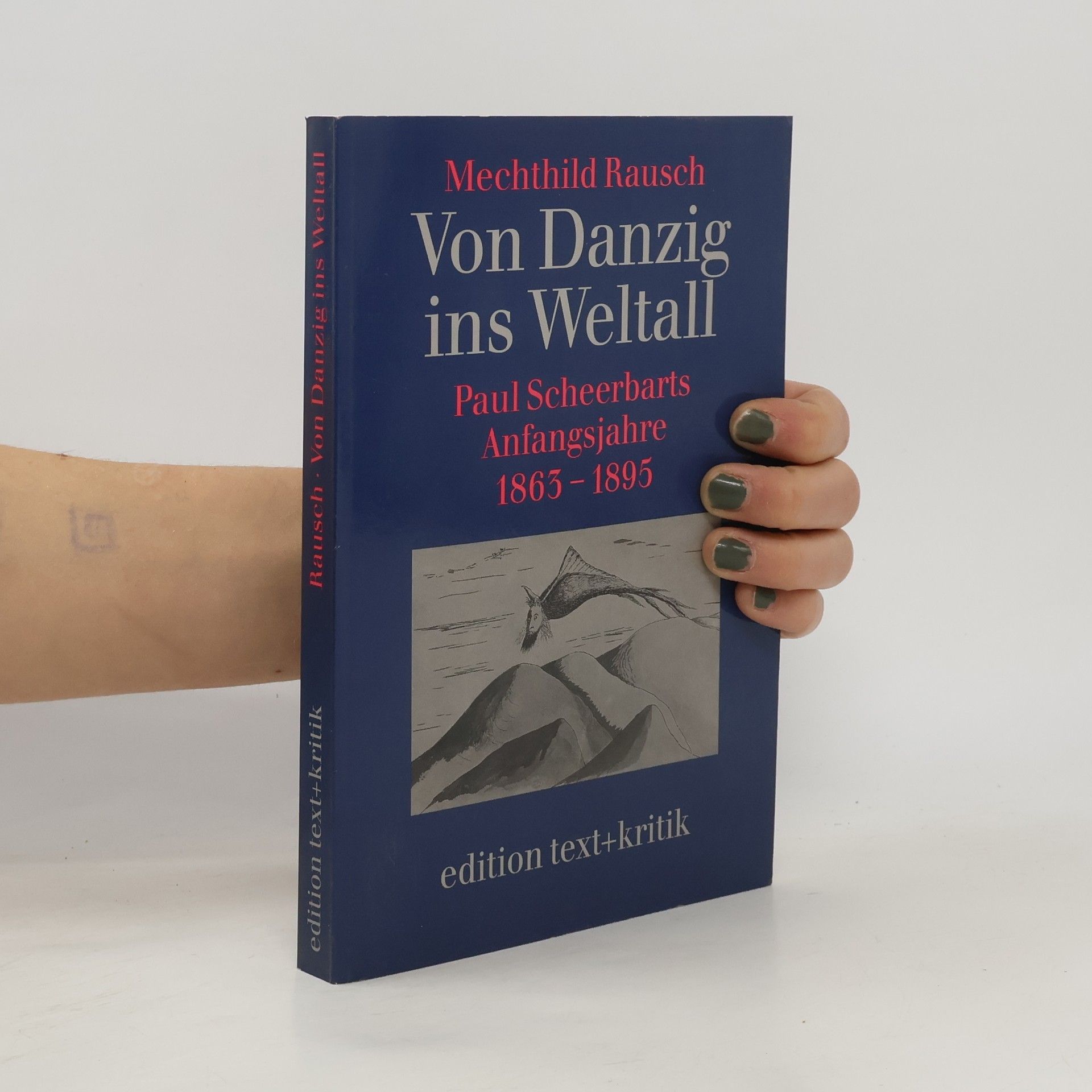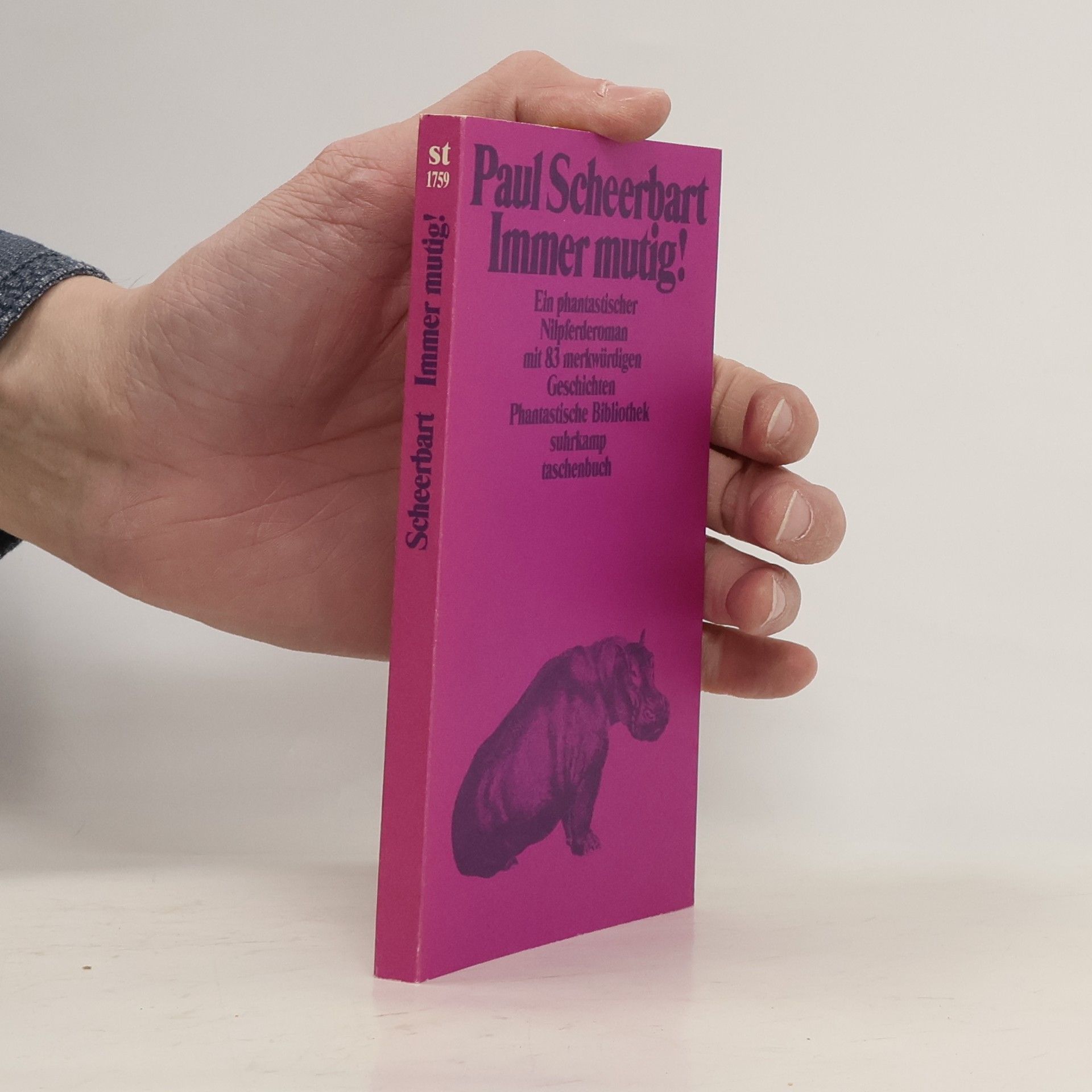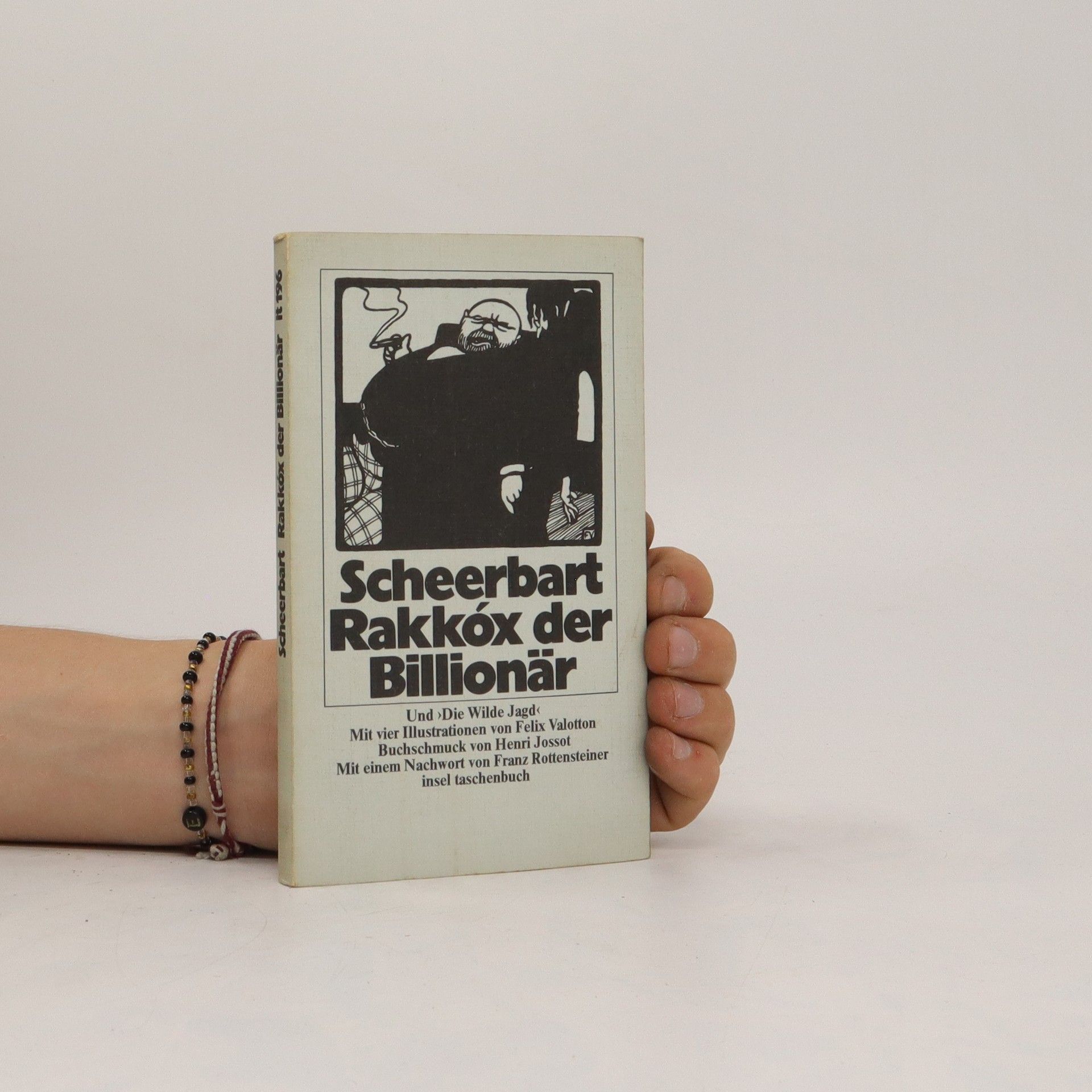Munchausen and Clarissa
- 152 pages
- 6 hours of reading
Paul Scheerbart was a German author of fantastic literature whose works often explore utopian visions and unconventional architectural concepts. His writing is characterized by playful imagination and a penetrating look at society, frequently emphasizing visual elements and dreamlike qualities. Scheerbart's writings offer a unique glimpse into early avant-garde literature, inviting readers into worlds filled with wonder and unconventional thought. His influence on the artistic and literary movements of his time is undeniable, making him a fascinating figure to discover.






The Victorian-era German cult novel, set in the mid-twentieth century, serves up a utopian vision of a future of glass architecture, as the protagonist, Swiss architect Edgar Krug, circumnavigates the globe by airship with his wife, constructing a wild variety of colored-glass buildings in various locales.
In "Die Unterzeichneten" empfiehlt Paul Scheerbart die Nutzung größerer Tiersorten wie Walrosse und Seelöwen für die Dressur. Mit innovativen Ausrüstungen wie kugelsicheren Hemden und künstlichen Flossen sollen diese Tiere in der Lage sein, die Meere kraftvoll zu bewegen. Scheerbart war ein deutscher Schriftsteller der phantastischen Literatur.
Bd. 1. Barthold Heinrich Brockes, Johann Gottfried Schnabel, Friedrich Gottlieb Klopstock, Christoph Martin Wieland, Johann Gottfried Herder, Johann Karl WezelBd. 2. Johannes von Müller, Karl Philipp Moritz, August Heinrich Julius Lafontaine, Wilhelm Friedrich von Meyern, Ludwig TieckBd. 3. Samuel Chriistian Pape, Friedrich de la Motte Fouqué, Leopold Schefer, Carl Spindler, Adalbert StifterBd. 4. Karl Ferdinand Gutzkow, Heinrich Albert Oppermann, Theodor Fontane, Karl May, Paul Scheerbart, Gustav Frenssen, Gottfried Benn, Ernst Kreuder, Rudolf Krämer-Badoni, Alfred Andersch, Arno Schmidt.
Aus dem Buch: "Und die Luft ist doch so still. Und die Menschen und Tiere sind auch so still, als wüßten sie gar nichts mehr zu sagen. Ein Schutzmann sitzt auf einer Parkbank unbeweglich mit einem Strolch zusammen – sie sehen sich unablässig an. Ein Regiment dekorierter Nachtwächter befindet sich vor dem Rathause in konstanter Präsentierstellung. Die Kinder sind in der Schule nicht mehr zu hören – so ruhig sind sie." Paul Scheerbart (1863-1915), auch unter seinen Pseudonymen Kuno Küfer und Bruno Küfer bekannt, war ein deutscher Schriftsteller phantastischer Literatur und Zeichner.
Paul Scheerbarts Anfangsjahre (1863-1895). Mit einer Auswahl aus den Lokalreportagen für den "Danziger Courier" (1890)
Paul Scheerbart entfaltete seine fantastischen und utopischen Ideen aus seiner Heimatstadt Danzig, die als Nährboden seiner Träume diente. Mechthild Rausch beleuchtet, wie sich Scheerbarts künstlerische Vorlieben und ästhetischen Maßstäbe bereits in Danzig formten, lange bevor er nach Berlin zog. Bislang war bekannt, dass Scheerbarts Leben um 1895 klarere Konturen annahm, doch über die Jahre davor war wenig bekannt. Es existierten lediglich zwei Buchtitel, einige Zeitschriftenbeiträge und wenige Briefe, sowie die Gründung des „Verlags Deutscher Phantasten“. Diese Monografie zielt darauf ab, Scheerbarts frühe Jahre zu beleuchten und bestehende biografische und bibliografische Lücken zu schließen. Zahlreiche Fehlinformationen über ihn und seine Werke sowie Missdeutungen seiner Persönlichkeit werden korrigiert. Überraschend ist, dass Scheerbart über ein Jahrzehnt als Journalist tätig war, insbesondere als Kunstkritiker für Berliner Zeitungen und als Lokalreporter für den „Danziger Courier“. Diese Rolle erfüllte der „weltfremde Träumer“ (Bruno Wille) fast ein Dreivierteljahr. Zudem wird seine enge Bindung an Danzig offenbar, die er gerne in eine „Idealstadt“ verwandelt hätte. Eine Auswahl seiner Lokalreportagen und eine Bibliografie seiner frühen journalistischen Arbeiten runden die Studie ab.
German
Paul Das große Licht. Ein Münchhausen-Brevier Leipzig, Rabinowitz, 1912. Das große Licht. Münchhausen in afrikanischer Sklaverei. Die kosmischen Postillione. Die drei Baumstaaten. Der Humor als Lebenselixier. Flora Mohr. Mikosai. Neue Gartenkultur. Die Perlmutterstadt. Auf der Glasausstellung in Peking. Das lebendige Mastodon. Das Gespensterfest. Oberluftkellner, Kohlensäcke und astronomische Reklamemanöver. Der Baron als Retter. Der Baron als Organisator. Der Baron und die Religion. Der Baron als Erzieher. Neuausgabe mit einer Biographie des Autors. Herausgegeben von Karl-Maria Guth. Berlin 2020. Der Text dieser Ausgabe wurde behutsam an die neue deutsche Rechtschreibung angepasst. Umschlaggestaltung von Thomas Schultz-Overhage. Gesetzt aus der Minion Pro, 11 pt.